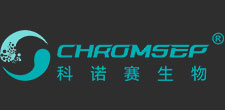Supercoiled Plasmid DNA Purification Protocol
With the continuous development of biomedical industry, the research and development and application of cell and gene therapy in China are accelerating. High-quality and high-purity plasmid DNA is a key component in the process of cell and gene therapy. The purity of plasmid will seriously affect the efficiency of transfection. If the plasmid is impure, the impurities contained in it will seriously affect the formation of transfection complex.
How to extract high purity plasmid DNA
Plasmid DNA gene therapy drugs are gene therapy products with plasmid DNA as vector. Escherichia coli is generally selected as host cell. DNA extracted from plasmid will appear in many forms: supercoiled plasmid DNA (scDNA), open-loop DNA (ocDNA), linear DNA and plasmid DNA aggregates. In addition, impurities such as host protein (HCP), host nucleic acid (HCD), RNA, endotoxin, etc. are also present. Supercoiled plasmid DNA (scDNA) is our target product because it has the highest transfection and expression efficiency. However, other DNA impurities also have purification characteristics very similar to scDNA, so a stable and effective solution is needed to obtain high purity plasmid products.
The best scheme for plasmid purification is to have a robust and efficient overall process in which each step can be well optimized. At present, the classical three-step chromatography method is more widely used in the market. Kono Biotech optimizes each step of chromatography process, combines different principles of chromatography purification technology and appropriate chromatographic medium together, and carries out experimental application research to ensure that the process is more stable and efficient on the basis of high purity.
Supercoiled plasmid DNA purification three-step method:
Step 1 Capture plasmid DNA and remove RNA
(Gel filtration chromatography Chrorose 6FF)
Step 2 Remove ocDNA
(Plasmid Chromrose HP)
Step 3 Remove trace impurities and endotoxin
(Ion exchange chromatography MoSphere 50M Q)

Plasmid DNA Purification Scheme and Case Analysis
First step gel filtration purification: capture plasmid DNA, remove RNA
Chrorose 6FF gel filtration chromatography medium is used for the first purification step, mainly removing a large amount of RNA and host protein and other small molecular impurities. Different groups are separated according to different molecular sizes. Due to the large difference in molecular weight of plasmid DNA and RNA, the sample loading amount can reach 0.3CV. Buffer replacement can be carried out simultaneously during purification, and seamless docking can be carried out directly with the second affinity chromatography purification step.
experimental conditions
Sample: Concentrated 20× Clarified Alkaline Lysates
Column: HiQum CTN 30
Chromatographic medium: Chrorose 6FF
Load: 0.3CV
Buffer: 2.1 M (NH4) 2SO4, 10 mM EDTA, 100 mM Tris-HCl, pH 7.5


Gel filtration chromatography purification results: Chrorose 6FF recovery ≥95%, electrophoresis results show that the sample removes RNA≥95%.
Step 2 Sulphophilic affinity chromatography purification: removal of open loop plasmid (ocDNA)
The second purification step was performed using Plasmid Chrorose HP thiophilic affinity chromatography medium. The molecular properties of ocDNA and scDNA were highly similar, with scDNA having higher base exposure and surface charge. Plasmid Chrorose HP? HP thiophilic affinity medium can separate ocDNA and scDNA specifically by its own characteristics, and improve the homogeneity of plasmid. After these two purification steps, the purity of scDNA can be increased to more than 90%.
experimental conditions
Sample: Chromose 6FF post plasmid DNA
Column: HiQum CTN 30
Chromatographic medium: Plasmid Chromrose HP
Equilibration buffer: 2.0 M (NH4) 2SO4, 10mM EDTA, 100mM Tris-HCl, pH 7.5
Elution buffer: 0.3 M NaCl, 1.7 M (NH4) 2SO4, 10mM EDTA, 100mM Tris-HCl, pH 7.5
Note: Different sequences and sizes of plasmids, purification buffer and load should be adjusted appropriately.


Affinity chromatography purification results: Plasmid Chrorose HP recovery rate can reach 90%, electrophoresis results show that ocDNA and scDNA can be completely separated, scDNA purity can be obtained ≥95%.
Step 3 Ion exchange chromatography purification: remove trace impurities and endotoxin
The third purification step is performed using MoSphere 50M Q anion exchange chromatography medium to remove trace impurities and endotoxins. After the first two steps of chromatography purification, scDNA purity and homogeneity basically meet the production requirements, but there is still a hidden danger of endotoxin. This step mainly uses the principle that endotoxin does not bind with the medium under high salt conditions to remove endotoxin from the sample. PolyGel 30Q has a yield of 85% for this sample plasmid.
experimental conditions
Sample: Plasmid DNA after Plasmid Chromrose HP
Column: HiQum CTN 30
Chromatographic medium: MoSphere 50M Q
Equilibration buffer: 0.4 M NaCl, 10mM EDTA, 100mM Tris-HCl, pH 7.5
Elution buffer: 1.0 M NaCl, 10mM EDTA, 100mM Tris-HCl, pH 7.5

Ion exchange chromatography purification results: MoSphere 50M Q sample recovery rate is about 83%, endotoxin content 1.2EU/mg(scDNA)
Summary:
The three-step plasmid purification method of Konosse Biotech was proved to be robust and effective, and practical. With the continuous development of technology, we will continue to optimize the process, upgrade products, help customers improve production efficiency, reduce production costs, and effectively contribute to domestic cell and gene therapy.






